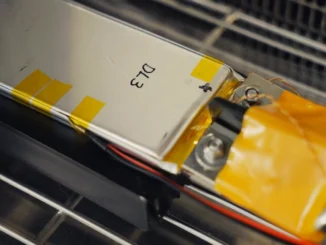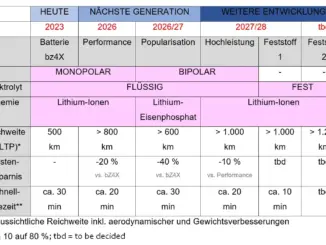The start-up Qkera, a spin-off of the Technical University of Munich (TUM), has developed innovative electrolyte components for solid-state batteries. With a particularly high energy density, robust stability and low production costs, Qkera aims to help this battery technology achieve a breakthrough. The Falling Walls Science Summit has now recognized Qkera as one of the world’s 25 best science start-ups.
A research team from the Cluster of Excellence e-conversion has created electrolyte components that increase the energy density of batteries by 30 to 50 percent compared to conventional batteries. The components are not only particularly thin and stable, but also enable low production costs thanks to a newly developed manufacturing process. Potential areas of application include smartphones and laptops as well as electromobility.
Qkera’s electrolytes consist of a lithium-ion-conducting oxide ceramic. „Basically, it is a material that is similar in structure to a coffee cup,“ explains Jennifer Rupp, Professor of Solid State Electrolytes at TUM and co-founder of Qkera. This brings additional advantages in terms of safety and sustainability: ceramics are hardly flammable and the batteries do not require rare earths, which are often mined in conflict-ridden regions. „Our technology also allows the use of lithium iron phosphate cathodes, which are otherwise less powerful than cobalt-based alternatives, but the material can be sourced in Europe,“ adds Dr. Andreas Weis, Co-Founder and CTO of Qkera. Qkera is supported by the TUM Venture Lab ChemSPACE, which specializes in key technology areas. (oe)




